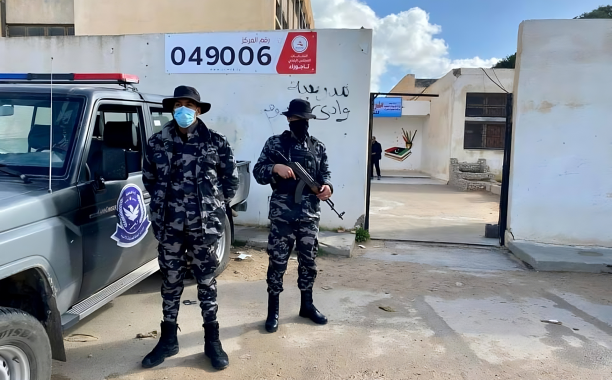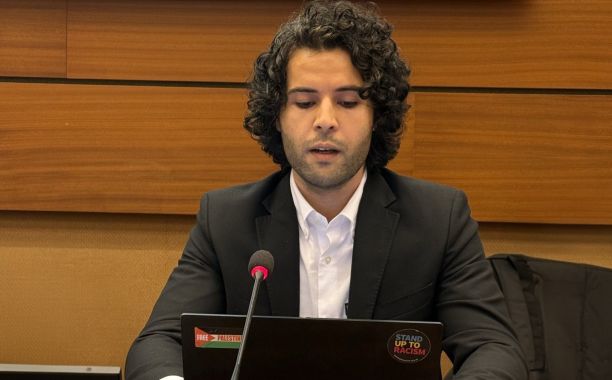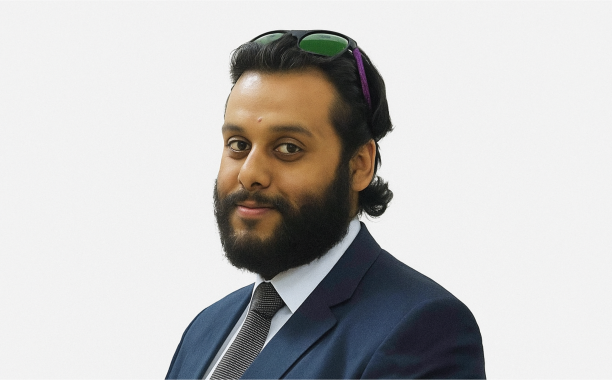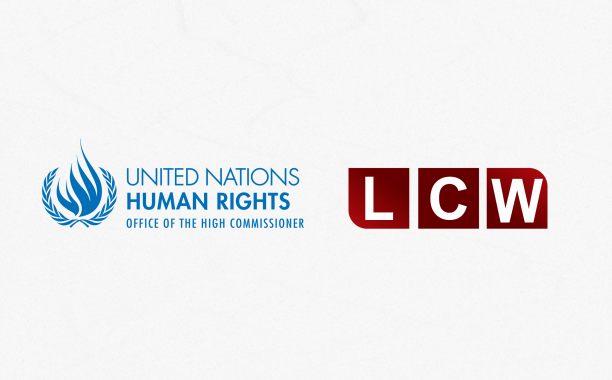21 Libyan organisations publish a joint statement on World Refugee Day
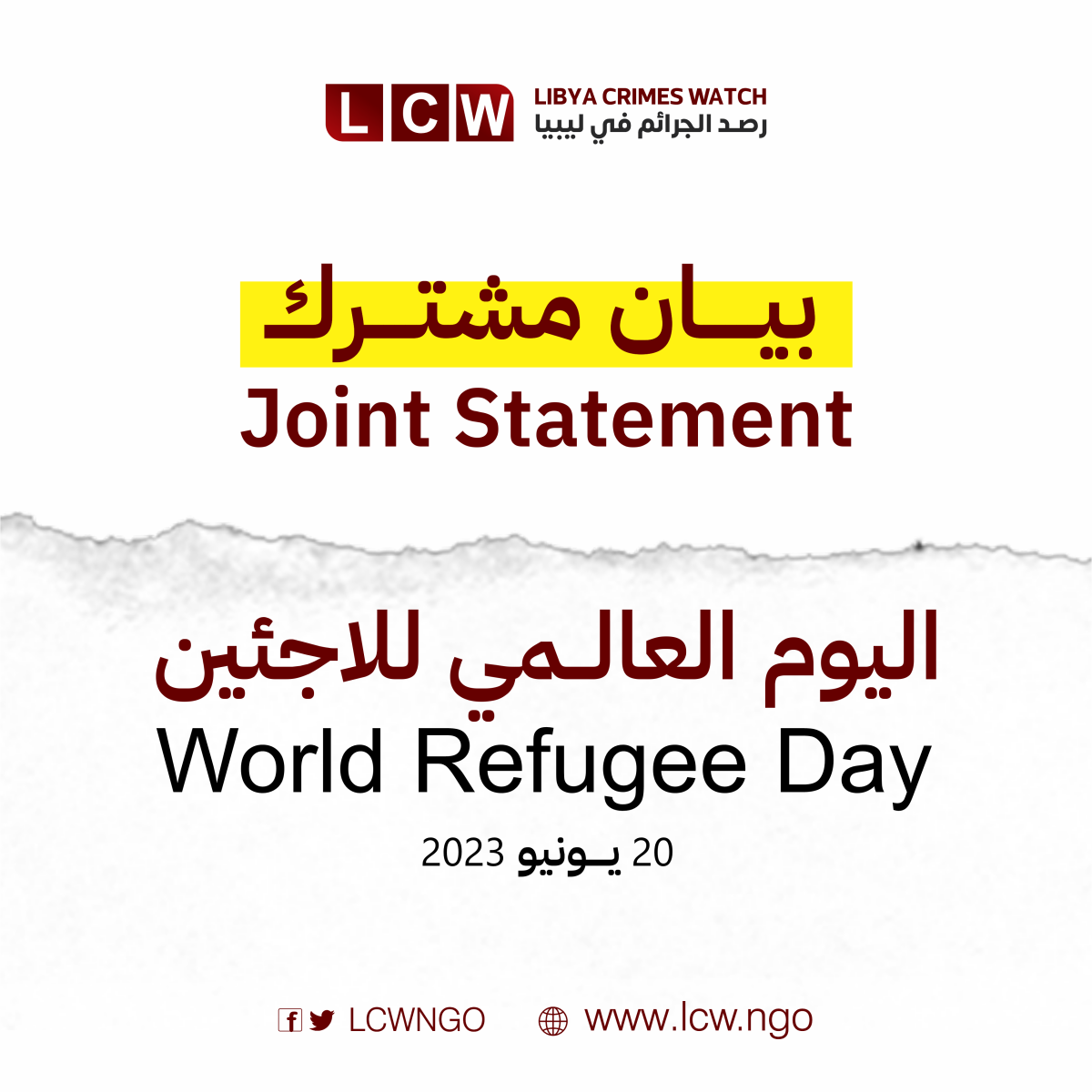
On World Refugee Day[1]
Libyan Authorities arbitrarily detain Hundreds of Refugees[2] and Asylum Seekers in Inhumane Conditions
The circumstances forced millions of people to escape their original homelands and flee in search of a safe haven to resume their lives anew, and in this perilous journey, many of them lose their lives, while many face ill-treatment, humiliation, extortion and sexual violence. June 20 marks World Refugee Day to remind us of their suffering worldwide and Libya in particular.
This day passes by refugees in Libya as one of the most painful days. Where This year began with arbitrary arrest campaigns that were shocking in their outcomes. The security authorities in the east, west and south of the country launched arrest campaigns. These campaigns were described as violent and undisciplined. The campaigns targeted a thousand refugees and asylum seekers, as well as migrants who entered through official border crossings; even children and women were not spared from those campaigns. International organizations and agencies, including the United Nations Support Mission in Libya (UNSMIL), condemned the campaign and called on the Libyan authorities to stop these measures and treat migrants with dignity and humanity in line with Libya’s international obligations. It also called on the Libyan authorities to grant United Nations agencies and international non-governmental organizations unhindered access to detainees who need urgent protection[3].
Libya has not ratified the 1951 Convention relating to the Status of Refugees[4], nor its 1967 Protocol, but it has joined the African Convention governing the different aspects of refugee problems in Africa[5], as well as many conventions on maritime rescue and the Convention on the Rights of the Child, which provide for the protection of asylum seekers and provide a safe place for them and connect them with the agencies that work to provide protection for them. Despite all these obligations, the Libyan legislator remained rigid in its place, as legislations were not amended, nor were any laws enacted to be aligned with those obligations. Libya still criminalizes illegal entry across borders into Libya, including refugees and asylum seekers[6], and they are detained and considered all “illegal” migrants.
According to estimates by the International Panel of Experts on Libya[7], established by Security Council Resolution 1973 of 2011, there are 24 government detention centres in Libya for detaining migrants and asylum seekers. And according to estimates by the United Nations High Commissioner for Refugees (UNHCR), there are about 4,500 people detained in Libyan detention centres controlled by the Department for Combating Illegal Migration (DCIM), of whom 2,500 are of concern to UNHCR. The total number of refugees and asylum seekers in Libya is 42,559 individuals, who are scattered across various areas in Libya[8]. UNHCR is mostly unable to communicate directly with them, and many services are provided by phone or through local and international organizations that are partners of UNHCR.
Asylum seekers and refugees complain of the negligence of UNHCR staff in communicating with them and providing assistance to them. The Libyan authority’s practice of obstructing UNHCR’s work is exacerbating the crisis of refugees and asylum seekers. UNHCR is not allowed to register asylum seekers in several areas, including eastern and southern Libya. This forces asylum seekers to travel to the capital Tripoli just for registration, which exposes them to risks on the way and harassment by outlaws, and sometimes detention because they do not have identification papers.
The situation of migrants and asylum seekers in Libya is always politicized on the one hand and neglected on the other hand. The UNHCR and the countries that are supposed to be the first host are accused of not being serious in creating realistic and urgent solutions to get the stranded asylum seekers out of Libya and transfer them to countries where they will be safer and protected.
World Refugee Day is a day designated by the United Nations to remind of the rights and obligations of asylum seekers and refugees and to remind the world that the decision to seek asylum is not a choice, but a compulsion, due to compelling circumstances that require risking and requesting protection. Accordingly, the organizations signing this statement issued the following recommendations:
Libyan Authorities
- That the Ministry of Interior fulfils its legal obligations towards unaccompanied children, takes all measures to separate them from adults, and facilitates the communication process of asylum seekers with the concerned organizations,
- That the Department for Combating Illegal Migration (DCIM) should train its staff, especially the guards guarding migrants and refugees in detention centres, they receive legal and human rights training to have the ability and competence to deal in professional ways that respect the privacy of children and women, and hire and train female staff to supervise the children and women sections in the detention centre,
- It is important that Libyan organizations working on the care of children and women allocate a part of their activities to children and women detained in detention centres and seek to launch programs and projects that help alleviate their suffering,
United Nations Mission and International Organizations Operating in Libya
- Build a joint and comprehensive advocacy strategy with the Libyan authorities that is realistic and feasible to expedite the separation of children from adults at all stages of their presence in Libya, especially those who are unaccompanied, and there should be a clear action plan for international organizations and a division of tasks among them so that they have a positive impact on the stakeholders, the children,
- The assessment of the United Nations Mission and agencies working in Libya on the file of irregular migration in Libya includes eastern Libya and sets a periodic comprehensive assessment for the entire geographical area in Libya. It should also pressure all parties to allow human rights monitors to visit all places of detention,
- That international organizations, including the International Organization for Migration and the United Nations High Commissioner for Refugees, pay attention to the hiring of their local staff in Libya, and that there is close follow-up on them in terms of raising their competence in relation to human rights and humanitarian aspects. It is important that part of their work includes receiving training and workshops related to human rights issues,
Refugees and Asylum Seekers:
- Respect the customs and traditions of the host society and understand the nature of the population, as this will ease the integration and provide a kind of protection for asylum seekers in Libya and migrants in general, and
- Avoid moving to places where the security situation is unsafe to avoid further violations of extortion or threats that endanger life and human dignity.
[1] On the fiftieth anniversary of the 1951 Convention relating to the Status of Refugees, which defines the basic concepts of international protection for refugees, the United Nations General Assembly, at its fifty-fifth session, decided to designate June 20 of each year as “World Refugee Day”, General Assembly resolution No. (A/RES/55/76) dated December 4, 2000.
[2] A refugee is someone who fled his or her home and country owing to “a well-founded fear of persecution because of his/her race, religion, nationality, membership in a particular social group, or political opinion”, according to the United Nations 1951 Refugee Convention. Many refugees are in exile to escape the effects of natural or human-made disasters.
[3] United Nations Support Mission in Libya (UNSMIL): “Statement on the arbitrary mass detention of migrants and asylum seekers that affected all parts of the country”, June 12, 2023.
[4] United Nations High Commissioner for Human Rights: “Convention relating to the Status of Refugees”, 1951.
[5] African Union: “OAU Convention Governing the Specific Aspects of Refugee Problems in Africa”, 1974
[6] Asylum seekers: Asylum seekers say they are refugees and have fled their homes as refugees do, but their claim to refugee status is not yet definitively evaluated in the country to which they fled.
[7] UN Security Council: “Final report of the Panel of Experts on Libya submitted in accordance with resolution 2571 (2021)”, May 27, 2022.
[8] UNHCR: “UNHCR Libya Update 06 June 2023”.
